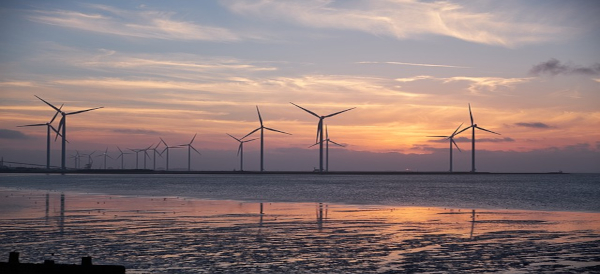
Energy
The Tension between Offshore Wind Energy and Marine Conservation
Sebastian Löcker - University of Bonn, Prof. W. Durner
This PhD project focuses on the tension between the German political expansion goals of offshore wind energy (OWE) and marine nature conservation.
In recent years, the German government has introduced a number of legislative changes aiming to accelerate the expansion of OWE. According to § 1 para. 3 WindSeeG, the currently installed capacity of OWE is to be increased to 70 gigawatts by 2045. This corresponds to the capacity of around 70 large coal-fired power stations. Compared to the current state of development, about nine times as many offshore wind farms will be in operation by 2045.
OWE has the potential to make a significant contribution to reducing greenhouse gas emissions. However, the biodiversity crisis must be considered alongside the desired energy transition. Marine biodiversity and ecosystems in the North Sea and Baltic Sea are already under severe pressure. The "good status of the marine environment" envisaged in Art. 1 para. 1 MSFD has not yet been achieved. The expansion of OWE carries the risk of further accelerating the process of degradation in the German Sea.
The legislator has exacerbated the conflict between OWE and marine conservation with the so-called "Easter Package 2022". Climate protection and the ongoing war in Ukraine are accelerating the demand for OWE in Germany. Environmental protection must not be neglected in this context. A major problem for the expansion of OWE is the limited space available in the German Exclusive Economic Zone (EEZ). Where should protection and compensation areas come from if OWE already fully utilises the limited areas of the German EEZ?
The aim of this PhD project is to analyse the conflict between OWE and marine nature conservation on the basis of the new national, European and international legal framework. Issues will be identified and proposals for solutions and possible legislative action will be developed.
Changes in the Landscape of Actors in the European Electricity Sector: The Prosumer in German and Polish Energy Law against the Backdrop of the EU‘s Legislation
Eva-Maria Thierjung - University of Greifswald, Prof. S. Schlacke
Against the background of the so-called "green transition", the EU-Commission announced a fundamental transformation of the Union’s energy system. In its vision the new one is to be based on renewable energies, be decentralized and, most notably, places citizens at its core. This is a completely new, revolutionary approach: traditionally supply structures are geared towards a small number of centrally organized players along linear, vertical structures. Multiple (legal) relationships and hybrid forms of action were not previously intended. This new, European approach shall come into action in the electricity sector by transposing the regulations concerning four new players – the active customer, citizen and renewable energy communities and renewables self-consumer – into national law. They are planned to serve as vehicles for transforming the largely passive final customers into active ones, then often referred to as prosumers.
The research project will firstly sharpen the general concept behind the regulations regarding these new system participants, so it can serve as a benchmark for assessing if their Member States' transpositions are compatible with European law. Building on this, German legal provisions implementing them will be analysed using a comparative law approach and the Polish legal system as the comparative one. The research here will focus upon the relevant regulations as well as their overall legal and political context and their socio-economic and historical background. Applying the comparative method on the legal systems of two countries whose electricity sectors are particularly different, on one hand, the actual feasibility of implementing the Union prosumer idea as a pan-European concept will be examined. On the other hand, and foremost, this approach will be used to identify new, unknown options of its implementation and in this way to contribute to the conformity of German with European law and to the realization of the transformation in the electricity sector.

